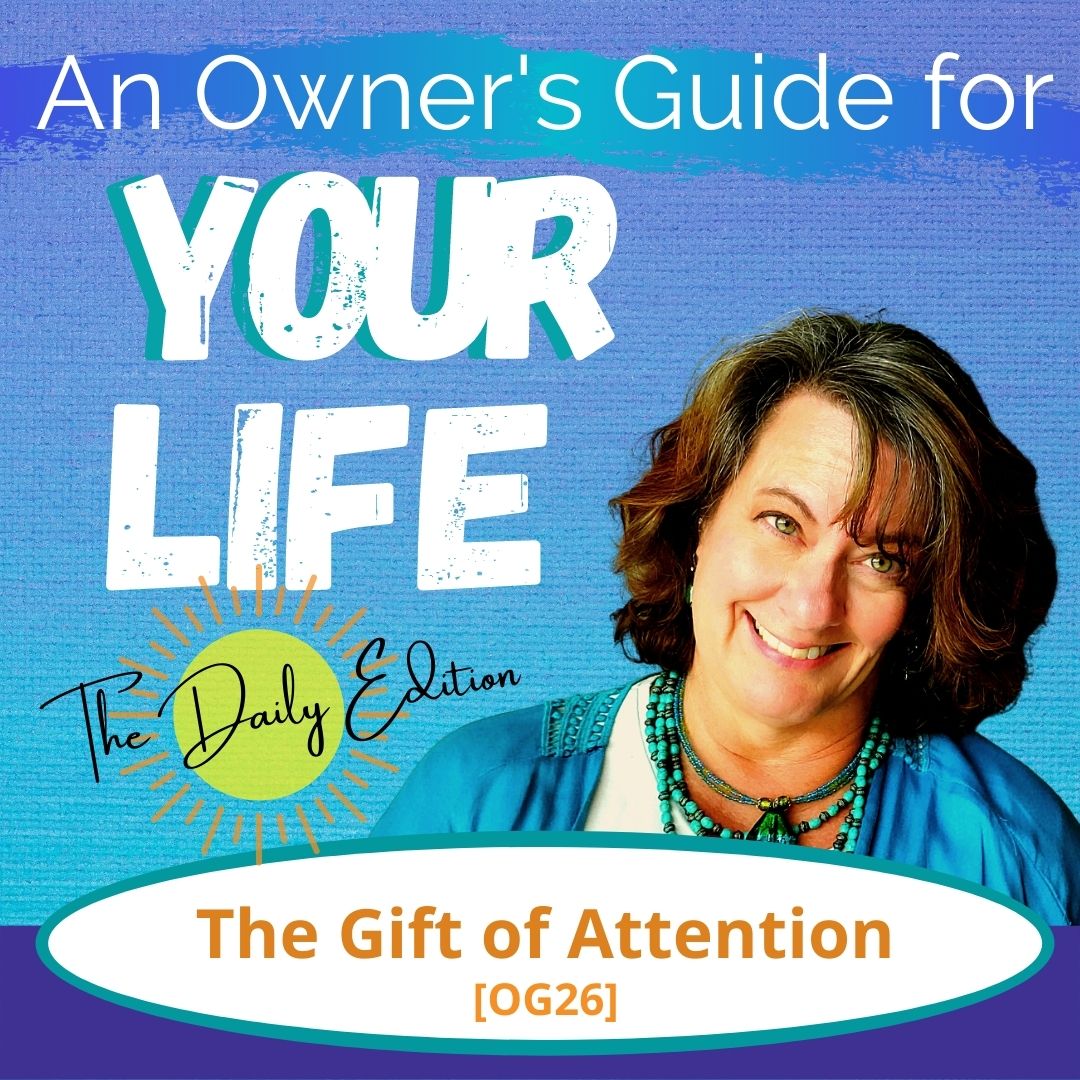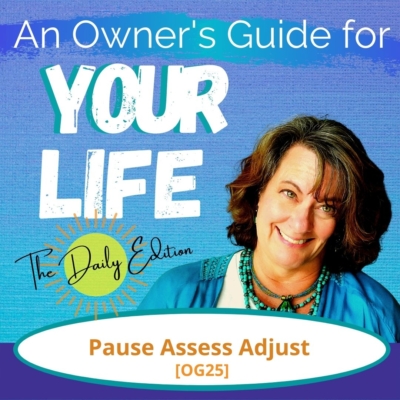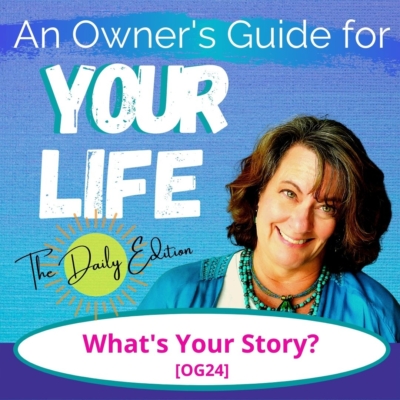Essentialism Part 3: The Elimination Game
Oct 13, 2021
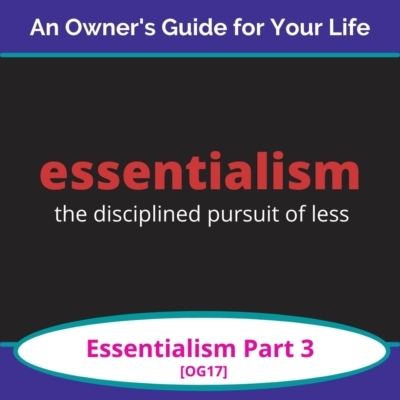
FOLLOW ME
A life defined by your decision to choose less, have it mean more and make a bigger impact?
You’re in the right place.
I’m discussing Greg McKeown’s book Essentialism: The Disciplined Pursuit of Less with my friend Karen Backway. Karen is a physician turned life coach and we enjoy talking about what we study and how we use our studies in our lives.
We discuss Part 3 of McKeown’s book- ‘Eliminate- How can we cut out the trivial many?’ in this episode.
This is a more difficult section for me because I’m in the thick of it personally. And if you’re a person who finds it hard to say no, you’ll probably have some issues here too.
If you’re reading the book or just listening to our discussions, I’d love to hear how you’re applying this to your own life.
In future episodes, I’ll be featuring questions from listeners- other life owners like you. If you have a question, topic or situation you’d like for us to explore, email me at tracey@tbrowning.com with ‘podcast question’ in the subject line.
What You’ll Learn From This Episode: Essentialism Part 3: The Elimination Game
- The benefit of slowly reading
- How and what do we eliminate?
- What is the one thing you want to be excellent at? And how do you even deal with the question?
- Get over your fear of waste and why that strikes a strong chord for me
- I work Gwyneth Paltrow and conscious uncoupling into the conversation
- Sunk cost bias- it’s hard to let go when we’ve invested
- Sorting through your life can be difficult and unsettling but worth it
Featured On The Show | Essentialism Part 3: The Elimination Game
Connect with me online!
Enjoy The Show?
Like what you’re hearing? I would greatly appreciate your review in Apple Podcast!
Don’t miss an episode- listen and subscribe via Anchor | Spotify | Google | Breaker | Pocket | RadioPublic | Apple Podcast | Stitcher | iHeart | Castbox | Listen Notes | TuneIn | Podchaser | Overcast | Downcast | Podcrucher | icatcher | Castaway2 | Podcast Republic | BeyondPod | AntennaPod | doubleTwist | Podcast Addict | PlayerFM
Learn More About TraceyContact Tracey
Follow Me On LinkedIn
Essentialism Part 3: The Elimination Game
Hey, I’m glad you’re here. This is Episode 17, and the conversation continues between me and my friend Karen as we talk about Greg McKeown’s book Essentialism. We’re talking about this book because it addresses key components to being a good, even great, owner of your life. Karen Backway is a physician turned life coach. She’s super smart with delightful insights.
And we’re talking about part three of the book today. Eliminate- how to cut out the trivial many, and it’s a little uncomfortable for me. I’m in the middle of actually doing this in my life. It can be hard. It’s worth it. Now. I do apologize for some of the hissy sound you may hear on my end of things in the recording. I had some technical challenges, and I did the best I could with them. This is “done beats perfect” in action, folks!
Grab a copy of the book Essentialism if you haven’t already.You don’t have to have a book to listen in to our discussion though. Enjoy. Here we go.
Music Intro:
Welcome to an Owner’s Guide for Your Life, the podcast that combines psychology, coaching, common sense and fine. I’m Tracy Browning, an entrepreneur, life coach and a lover of people. Now let’s talk about how to live, live, make money, and change the world.
Tracey: All right. Welcome to Essentialism part three. And I kind of feel like I should go, “Da-da-DUM” with some really dramatic music. Part Three is Elimination, and I’m back with my friends, Karen Backway.
Karen: Hello. Hello.
Tracey: I am so, so grateful that you agree to talk with me about this.
Karen: It’s so much fun.
Tracey: I enjoy it. It’s great.
Karen: I’m glad you haven’t eliminated our conversation.
Tracey: Oh, look at you. Look at you working that in. It helps me figure things out and it helps me apply it. I don’t know how you read things, but like when I read things, I love to read. I love to read fast. And what happens is I read a lot very fast, but then I don’t take the time to put it to work. So this is really helping me slow down and focus and apply things in my life.
Karen: I like that, I absolutely agree. So many people have the same affliction. They read all kinds of really useful information and then put it down. Even if you only take one or two Nuggets from Essentialism and intentionally apply it to your life, I think it has the power to make a significant impact degree impact, right?
Tracey: Yeah, definitely.
Karen: I want to start with very first chapter [in this section]. He talks about essential intent.
Tracey: Yes, I have that written in big letters on my whiteboard.
Karen: I know it’s a really good concept. So maybe if this is the only one we’re going to follow, maybe it’s the one we should scratch on our whiteboard. And it is you ask yourself the question if we could be truly excellent at only one thing, what would that one thing be?
Tracey: That is a marvelous question.
Karen: And then the second question that I think goes with it is, how will you know when you’re done?
Tracey: Yes.
Karen: So many people move the goal post when they start to get close to whatever their end goal is, so they never achieve it because they just they move it and then it’s self-defeating purpose. Set a goal, run through it. Essential intent. Set a goal and run through the goal post.
Tracey: Right. Which, when I started reading the chapter- because he calls it clarify- to make one decision that makes a thousand decisions unnecessary later. I didn’t think that was where he was going with it. Because I love the idea of making one decision that makes it so much easier later. And the example that always comes to mind for me is like Steve Jobs and what he wore. He wore a uniform like a turtle neck and jeans and tennis shoes all the time. He wasn’t wasting his decision making energy on what do I wear today?
So I thought that was really where he was going to go with this. But I really love that whole idea of essential intent. What one thing do you want to be excellent at and how do you know when you’re there? Okay. It makes me stop and think. Don’t just read through this. Don’t just read it fast and go,”Yep. I read another book.” Stop and think, what one thing do I want to be excellent at? It’s hard to narrow it down to one thing, don’t you think? Is it hard for you?
Karen: It’s incredibly difficult because there’s so many good things that you’re not choosing that you’re selecting out in a way. And I think we talked about this last time. Maybe that on ranking things from seven scale of ten to one. And the eight, nine are easy and less than five are easy. It’s that six and seven that are good but are they the best? In this chapter, he’s getting us to eliminate everything under eight and that’s kind of scary. That’s hard work. So what is the one thing you want to excel at? I would go as far as you should be able to divide that up into different aspects of your life.
Tracey: And I was just going to say that as I’m sitting there thinking, okay, if I say I want to be excellent at coaching, but do I have to rank that as a higher priority than more excellent at wifing? I want to be an excellent wife.
Karen: Or mother.
Tracey: Right.
Karen: So what is the one thing about coaching that you want to excel at that you absolutely love and would do for free forever. To me, that’s a fair question. Then the only thing that you, the one and only thing that you will excel at, and you only get one thing that’s a little bit too limiting. Now he does talk about “hell yes” and that you should have between four and five “Hell yeses” that you decide on in your life and then in each of those areas of your life focus on the one thing.
So I mean, I did this exercise since we started chatting about this. I sort of re-evaluated what’s important to me. And I came up with four “hell yes” And these are mine. They don’t have to be anybody else’s. It’s just an idea that, you know, for me, it’s connection, which is, you know, friends and family, the relationships that you have in your life, right? Second one is my own health and well being, getting exercise, eating appropriately, getting your weight right. Those kinds of issues. The third one is building my business. And the fourth one is the role that I play with Oak Ridge Academy on the board, which is moving something that’s important to me. And it helps me build a purpose that’s beyond myself.
So those four things, four activities, things makes it sound like it’s diminished. But there are four activities that I have deemed important for me. And now the trick is to pick the one thing that I’m going to be focused on at this time. So connection. I mean, family is important up here. It happens to be Thanksgiving weekend. So, you know, we had Thanksgiving dinner and the whole family was there and a good time was had by all. We actually ate outside. It’s warm enough. It’s lovely building my business. I’m starting to do some more writing and some more blogging, and I’ve got a mastermind group that I’m in. Thank you, Tracey. It is lovely. And, you know, that’s important to me. It helps me focus on what I need to be doing now. It may change next month, but right now, the most important thing is to get me thinking and writing and offers and those sorts of things. Right. I have to do one thing for the rest of my life. It’s until I’m done with whatever that one thing is in my view.
Tracey: And I like that that feels so much better. And I had shared with you right before we started recording. I thought I’m not sure I like this section of the book as much as I like the others. All right. Here’s why I don’t like it, because I don’t like to eliminate stuff. One of the things that’s in the later chapters, he’s got several chapters here in the elimination section of dare, how to say a graceful no, how to uncommit and how to edit. And it’s in that Uncommit chapter where he says, “Get over your fear of waste”. I threw the book down because I said, “Oh, no. This is exactly what I’m dealing with!” Going through my father-in-law’s estate. My husband and I and his sister and her husband, we are having to go through the whole household and dismantle his life, and there’s sadness with that. But there’s also, and I don’t think I’m too unusual with this, but there’s this fear of waste. Those are perfectly good pots and pans.
Karen: That someone else can use?
Tracey: Oh, yes. Okay, gosh. It feels awful to say, that feels miserly, stingy, thrifty. I don’t like the word stingy. I don’t want to say I’m stingy. I have this intense, “I don’t want to waste something”. And your point there is the same point that my mother made me. She said, “Okay, just ask yourself, who needs this more than we do now?”. Some things we want to keep for the sentimental value. But then there’s some other things that it’s okay. It’s not like we’re trying to keep everything.
Karen: but there’s still the California raisins.
Tracey: Oh, you know why I kept those. They make me laugh. And I love that. But I’m probably going to move them on after a while because I don’t need 20 California raisins sitting there on the shelf looking at me.
Karen: No, but you can keep one for posterity.
Tracey: I could, right. But that letting go, letting go. And he does make lots of points , like about the Concorde Jet, it lost money for over 40 years. LOST money.
Karen: Right. And that’s where he talks about the sunk costs of keeping a decision going. Yeah. Even when you re evaluate it. But I put so much time or so much money or both into this, right? You keep waiting for that big payoff. And that’s the point he’s making, right?
Tracey: Yeah. And I think that’s a situation a lot of people find themselves in in different times and places. How do you know when to stop? Well, if you go back to, ‘Alright, I’m very clear on my essential intent. What’s important? How do I know when I’m there, when it’s done?” then it’s a little easier to weigh, right. Is this something worth continuing? He talks about different questions that you should ask yourself when you find yourself stuck in sunk costs.
Karen: If you were to start from scratch, now would you?
Tracey: That’s a good one. And knowing what you’ve invested now, putting that aside, how much would you invest if you had to do it? Now would you buy this all over again? Maybe not right. But you already have it. Or you are already invested $50,000 or whatever in whatever the situation is. And you could say, how does this impact how you’re feeling? Whichever decision direction you go, if you say, Nope, I am done and you have this knot in the pit of your stomach and you feel upset initially, you may feel that way, but if that lingers, maybe that’s not the decision you need to make, or if you make the same decision it’s like so much lighter. This was absolutely the right thing. Then how you feel can confirm your decision.
Tracey: Yes. Yes. And as you’re talking, I’m thinking reading the book, he does give a lot of different questions, a lot of different ways to not only evaluate what you could uncommit from, but he gives some great list of ways to say no without actually saying no. And I really like that. But as I’m listening to what you’re saying, I’m thinking, okay, here’s the difference in what you and I do as life coaches, that we even go deeper into the foundation of the questions. What are you feeling when you have these questions? And where do your feelings lead you? What actions do your feelings lead you into? So there’s this whole untapped arena that his book doesn’t get to. It’s kind of like he’s got the play by play. But we, in working with someone in coaching, are looking more at how’s it really playing out for you. And how are you feeling? And if you’re feeling really good about that, then close that chapter. Do the conscious uncoupling. I don’t know why that term came to mind, but I guess that’s why. Who was it Gwyneth Paltrow and whoever she married- you’re looking very puzzled. So you don’t know what I’m talking about?
Karen: No, I’m wondering, wracking my brain thinking uncoupled. What did you call it uncouple?
Tracey: That was the term they used instead of divorce, that they consciously uncoupled, which, okay, this was a few years ago, and whoever she was married to now I cannot remember who they took a lot of grief for it, but I think, okay, well, that’s an interesting term. Alright. We evaluated, we chose, we made the decision consciously to no longer be a couple. It’s kind of essentialism in action there.
Karen: You got me on that one. When I first read this book, I made a mental note about what he’s calling here is zero-based budgeting, something that accountants do at a year end. And basically they put everything, all of the contracts, all of the things that accountants do, and they budget for it as if it was a brand new thing. Will I continue with this particular contract? Do I need this to keep going forward and every single thing. You can do it with your life. Do I still want this mortgage? Do I still want to live in this house? Do I still want to have a dog? I want to get a second dog, whatever. And you put everything on the table and then you select out what you want to keep going forward. And it’s just to me it’s a way of asking yourself what’s important. Now you may no longer need a five bedroom house on a one and a half acre lot on the edge of town. You might want now a two bedroom condo downtown. Things change. So when you put every decision that you’ve made with all the stuff and contracts and decisions that you have on the table and pick now what is most valid. It’s a great way to sort through the clutter.
Tracey: It really is. And that’s where when he talks about that in the book and then I’m looking at some of my notes I’ve made, and he hits that theme in several chapters of deliberately subtracting, which is what you’re doing with zero-based budgeting. You’re starting from zero. There you’re deliberately adding. But if you’re going to edit, you’re going to consciously choose. I want this. I don’t want this and the things that don’t meet my “hell yes” standard, I’m not going to do. And one of the things he talks about, too, is that when you’re condensing this doesn’t mean that you’re just getting better at multitasking and doing a whole lot of stuff faster. It means there’s less waste. You’re going to do a lot more thinking and sorting through your options and actively choosing. And in the end, I mean, like any new thing. At first, a new thing is kind of cumbersome and takes a lot of time and effort and energy. But once you get used to doing this, I already see it happening with me that it’s easier to evaluate those choices and it’s easier to go. Maybe I don’t need this, and maybe this is a five. So I’ll just let it go.
Karen: When you were describing that, I was flipping through the book and one of his very pages with very big letters talks about the Latin root of the word decision is actually CIS, which literally means to cut or to kill. So you make a decision and you kill your options. That’s a way to think about it. That’s why you probably don’t like this chapter.
Tracey: I’d that’s why I don’t. Well, part of it, too. Okay. How much heartfelt confessions do I want to make? I don’t know. I was telling somebody the other day, I’m fairly laid back and easygoing. Ask me where I want to eat, it doesn’t matter. I’m up for anything. So I kind of go with the flow. But what that leads to is when I have to make a decision, it’s really hard. Cutting off the other choices feels like cutting off a finger sometimes, which is dramatic, but sometimes that’s how it feels. But the more you practice making the decisions, the easier it gets.
Karen: and the more JOMO- you get joy of missing out.
Tracey: Yes. So for sure, this section was more challenging in the concept that it offers. It’s just hard to start to remove the good things and keeping only the best thing, right?
Karen: I also would imagine and believe, like you just said, it gets easier the more you do it because that the best activities are going to create more of the best you and the best version of you and your future.
Tracey: Exactly. Exactly. I don’t know that you could really do this effectively if you didn’t have a fairly clear idea of where you were going and what you wanted.
Karen: That’s part of the exploration stuff, right. Which is why you explore before you eliminate.
Tracey: And I’m having this scenario pop in my head years ago, I was one of these women who you asked me to do something, of course I’m going to do it. I’m never going to say no if you ask me, I just feel obligated to say yes. And of course, I can do all the things because people ask me to do good things. So I made myself practice saying no without explanation. Just no. And it was really, really uncomfortable. But I got better at it.
Karen: It takes a lot of courage to say no to good things
Tracey: It does, doesn’t it?
Karen: Very few women can offer no without an explanation. Yeah, very hard to do. Would you like to come out for lunch? No, thanks. Well, why not? I don’t want to be rude.
Tracey: It’s like, right, then we get called names. We won’t go into that. But yeah, but when you say it with kindness and just certainty, that calm certainty. No. Will you do this? And you know, he has a really nice list of suggestions of different things to say with that. But I like this. It’s catching my eye in my notes. Go for the slow yes and the quick no. Now you can always say, well, I’ll check my calendar or if you’re really uncomfortable, you could put it off on something else. Let me get back to you. But just no. I’ve got a lot of work to do on this because I really do want to get better at eliminating the lukewarm activities for my life. I really want that.
Karen: It’s also possible you probably have a lot of that already.
Tracey: I have. I have done a whole lot of that. That’s probably too why I feel a little more discomfort now because I’m not dealing with the sixes.
Karen: you’re dealing with the hot and steamy.
Tracey: I’m dealing with seven and eights, those things that are really good and have a lot of potential. But are they my “hell yes”? Or my “yes”? So it really, it takes a lot of thought and a lot of awareness. Alright. Well, I summarize this section as hone in on what matters and stick to it. Be a judicious editor. Edit, edit, edit. Whether it-
Karen: Get your essential intent.
Tracey: Get your essential intent. No, I can’t say it now. Essential intent. It’s hard not to put the “N” in ennssential, essential intent. Stick to it. Eliminate everything else.
Karen: Well, next chapter, or next section is much more fun.
Tracey: Yay, I like fun. I need that part. Four comes up next.
World Kindness Day
World Kindness Day Nov 12, 2021 [...]
Downward Dog for Work
Downward Dog for Work Nov 11, 2021 [...]
Belly Flops and Oddvocados [OG27]
Belly Flops and Oddvocados Nov 10, 2021 [...]
The Gift of Attention
The Gift of Attention Nov 9, 2021 [...]
Pause, Assess, Adjust
Pause, Assess, Adjust Nov 8, 2021 [...]
What’s Your Story?
What's Your Story? Nov 5, 2021 [...]

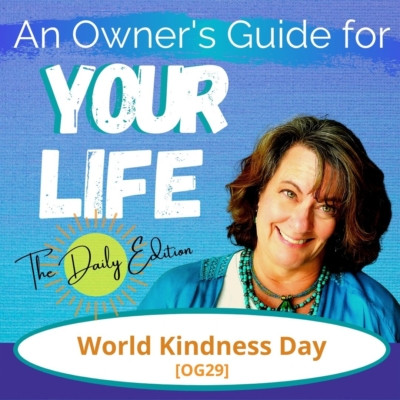
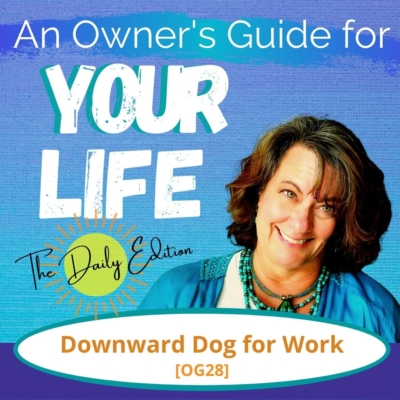
![Belly Flops and Oddvocados [OG27] 3 Belly Flops and Oddvocados](https://www.tbrowning.com/wp-content/uploads/2021/11/belly-flops-and-oddvocados-e1636547597568.jpg)
